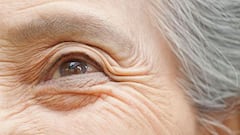Oatmeal Soothes Your Skin. Know Its Benefits, Applications, And Remedies For Allergic Reactions
Driven by its natural properties and soothing qualities, oatmeal proves to be a powerful ally against allergic reactions, offering relief from the discomfort of itching, redness, and inflammation.

(By Dr. Vichitra Sharma, who is a Consultant, Department of Dermatology at Amrita Hospital Faridabad)
Oats are a type of cereal grain that is commonly grown and consumed around the world. They belong to the plant species Avena sativa. From culinary delights to skincare wonders, the versatile oat takes center stage in various aspects of our lives. Let us unravel the mysteries of oatmeal, exploring its culinary versatility and its remarkable potential for nurturing our skin. Driven by its natural properties and soothing qualities, oatmeal proves to be a powerful ally against allergic reactions, offering relief from the discomfort of itching, redness, and inflammation.
Oats are primarily grown for their seeds, which are processed and used in various food products.
- Culinary Uses: Oats are a versatile ingredient used in a variety of dishes, with oatmeal being one of the most popular. Oatmeal can be served sweet or savoury, and oats are also used in baking, such as oatmeal cookies, granola bars, and oatcakes. Oats can be used as a thickening agent in soups and stews or as a coating for fried foods.
- Health Benefits: Oats are considered a healthy food choice due to their high fibre content, which can help promote digestive health and may contribute to lower cholesterol levels. The beta-glucans in oats are known to have potential cardiovascular benefits. Oats are also a good source of energy and can help keep you feeling full and satisfied.
What Are The Benefits Of Oatmeal For The Skin?
Oatmeal can offer several benefits for the skin when used in skincare routines and products. These benefits are primarily attributed to its natural properties and soothing qualities. Here are some of the advantages of using oatmeal for skin:
- Soothes Irritated Skin: Oatmeal has anti-inflammatory properties that can help soothe and calm irritated or inflamed skin. It is often used to alleviate the discomfort associated with conditions like eczema, psoriasis, sunburn, and insect bites.
- Moisturizes Dry Skin: Oatmeal contains beta-glucans, which form a protective layer on the skin's surface, helping to lock in moisture. This can be particularly beneficial for individuals with dry or sensitive skin, providing hydration and relief from dryness and itchiness.
- Exfoliates Gently: Finely ground oatmeal can be used as a gentle exfoliant. It helps remove dead skin cells and unclog pores, leaving the skin smoother and softer without causing excessive irritation or damage.
- Balances Oil Production: Oatmeal can help regulate the skin's oil production, making it suitable for people with oily or acne-prone skin. It can cleanse the skin without stripping it of essential moisture, reducing the likelihood of excessive oil production.
- Reduces Redness: Oatmeal's anti-inflammatory properties can reduce redness and blotchiness in the skin. This makes it an excellent ingredient for soothing rosacea-prone or sensitive skin.
- Anti-Ageing Benefits: Oats are rich in antioxidants, such as vitamin E, which can help combat free radicals that contribute to premature ageing. Regular use of oat-based skincare products may help improve the overall appearance and texture of the skin.
- Natural Cleanser: Oatmeal can act as a natural cleanser, gently removing dirt, impurities, and excess oil from the skin's surface. This can be particularly useful for those with sensitive skin who may be prone to reactions from harsher cleansers.
- Reduces Itchiness: Oatmeal baths or oat-based skincare products are often recommended to alleviate itching caused by conditions like chickenpox, poison ivy, or allergic reactions.
To harness these benefits for your skin, you can use oatmeal in various ways:
- Oatmeal Bath: Adding colloidal oatmeal (finely ground oatmeal) to your bathwater can help soothe and moisturise the skin.
- Oatmeal Face Masks: Create a homemade face mask by mixing oatmeal with water, yoghurt, honey, or other natural ingredients. Apply it to your face, leave it on for a short period, and then rinse off.
- Oatmeal-based Skincare Products: Look for skincare products that contain oatmeal as an ingredient, such as oatmeal-based creams, lotions, and soaps.
Before trying any new skincare regimen or product, especially if you have sensitive or allergy-prone skin, it's a good idea to perform a patch test to ensure you don't have any adverse reactions. If you have specific skin concerns or conditions, consider consulting a dermatologist for personalised skincare recommendations.
Oatmeal For Allergic Reactions:
Oatmeal can be used in various ways to help alleviate symptoms of allergic reactions, particularly those affecting the skin. It's important to note that while oatmeal can provide relief for many people, individuals with severe allergies should consult a healthcare professional for appropriate treatment. Here are five ways oatmeal can be used for allergic reactions:
- Oatmeal Bath:
- Fill a bathtub with lukewarm water.
- Place a muslin bag or a clean sock filled with finely ground colloidal oatmeal (available in stores) under the running water to create an oatmeal-infused bath.
- Sit in the bath for 15-20 minutes to let your body soak the oatmeal.
- Gently pat your skin dry with a soft towel; do not rub.
- This method can help soothe itching, redness, and inflammation associated with allergic reactions such as hives or skin rashes.
- Oatmeal Paste:
- Mix finely ground oatmeal with water to create a thick paste.
- Apply the paste directly to the affected area of the skin.
- Let it stay for 15-20 minutes.
- Rinse it off with cool water.
- This can help reduce itching and inflammation from localized allergic reactions like insect bites or contact dermatitis.
- Oatmeal Face Mask:
- Combine finely ground oatmeal with yoghurt, honey, or aloe vera gel to create a soothing face mask.
- Gently apply the face mask while avoiding the areas around your eyes.
- Leave it on for 15-20 minutes.
- Rinse it off with lukewarm water.
- This can be beneficial for calming facial skin affected by allergic reactions or redness.
- Oatmeal Compress:
- Make a strong oatmeal infusion by steeping oatmeal in hot water, and then straining the liquid.
- Let it sit until the mixture is at room temperature.
- Soak a clean cloth or cotton pad in the oatmeal infusion.
- Gently apply the soaked cloth to the affected area for 10-15 minutes.
- This method can help reduce itching and inflammation for localized allergic reactions.
- Oatmeal-Based Skincare Products:
- Consider using over-the-counter skincare products that contain colloidal oatmeal as one of their ingredients.
- Look for creams, lotions, or ointments specifically formulated for soothing allergic skin reactions.
- Follow the product's instructions for application.
Risk For Using Oatmeal In Allergies:
Remember that oatmeal is generally safe for most people, but it's essential to ensure you are not allergic to oatmeal itself before using it for allergic reactions. If you experience severe or widespread allergic reactions, such as anaphylaxis, difficulty breathing, or swelling of the face and throat, seek immediate medical attention and do not rely solely on oatmeal remedies. Always consult a healthcare professional if you have concerns about allergies or allergic reactions.
Natural Ways To Treat Allergic Reactions:
Treating allergic skin reactions naturally can provide relief from itching, redness, and inflammation without the use of synthetic or potentially harsh chemicals. Here are some natural ways to address allergic skin reactions:
- Cool Compress: Apply a cool, damp cloth or compress to the affected area. This can help reduce itching and soothe the skin. Avoid using hot water as it can worsen inflammation.
- Oatmeal Bath: As mentioned earlier, an oatmeal bath can be very soothing. Place colloidal oatmeal (finely ground oatmeal) in a muslin bag or sock and add it to a warm bath. Soak for 15-20 minutes to calm the skin.
- Aloe Vera: Apply pure aloe vera gel directly to the affected area. Aloe vera has anti-inflammatory and soothing properties that can help alleviate itching and redness.
- Coconut Oil: Apply organic, virgin coconut oil to the irritated skin. It has moisturizing and anti-inflammatory properties that can help relieve discomfort.
- Calendula Cream: Calendula is an herbal remedy known for its skin-soothing properties. You can find calendula creams or ointments at health food stores or make your own by infusing dried calendula flowers in any carrier oil and then using the oil on the affected area.
- Honey: Raw honey has natural antibacterial and anti-inflammatory properties. Apply a thin layer of honey to the irritated skin and leave it on for about 20 minutes before
- Stay Hydrated: Drink plenty of water to keep your skin hydrated inside out. Skin remains healthy when the body is well hydrated.
- Avoid Triggers: Identify and avoid the allergens or triggers that cause your skin reactions. This may involve changing laundry detergents, avoiding certain foods, or using natural cleaning products.
Remember that one size does not fit all – each person’s reaction to natural remedies may vary. If your allergic skin reaction is severe, persistent, or spreading, or if you experience symptoms like difficulty breathing or swelling of the face and throat, seek medical attention immediately. Additionally, if you have known allergies, consult with a dermatologist or allergist for personalized advice and treatment options.
(Disclaimer: The opinions, beliefs, and views expressed by the author on this website are personal and do not reflect the opinions, beliefs, and views of ABP News Network Pvt Ltd.)
Check out below Health Tools-
Calculate Your Body Mass Index ( BMI )
Top Headlines
Trending News






































